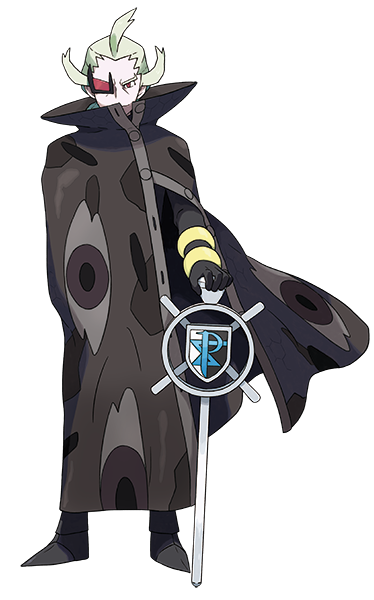Tangent #1
This is going to be a write-ups of semi-tangents, as part of a larger points. Lets start with this one: My favorite sports writer is Jon Bois. In one of his videos, he makes an interesting point about the nature of critique of athletes. Here, I’ll link it.
I think it could be summarized as follows: The worst Baseball player in the MLB is one of the best Baseball players in the world. But by being in the MLB, it no longer really matters that you’re good, because now it’s only relative.
My Hero Academia ran for just over 10 years in Shonen Jump, or 520 weeks. It finished at 430 chapters. I have problems with it! I’m going to talk about them. But I at least want to first acknowledge the fucking super human feat that is telling a compelling story for 10 years on effectively a weekly basis in a magazine that effectively kicks you end when readership interest in your series gets too low.
This isn’t really a review. It’s not intended for people who haven’t read the series. If I have a thesis statement, it might be this:
My Hero Academia asked a bunch of interesting questions. It’s just a shame that it never really seemed to answer any of them.
Tangent #2
Most villains in the Pokemon games are cartoon characters. Mostly Saturday morning, occasionally Adult Swim. Fundamentally they’re goofy, unambiguously evil, and willing to harm others for their own benefit or in furtherance of their own goals.
The notable exception to this is N.
N is unique as an antagonist for a lot of reasons, but one of the primary ones is that his philosophy of Pokémon liberation and freedom is actually a defensible one. He doesn’t want to rule the world, or remake it, or add extra water. His view questions and potentially exposes issues with the Pokémon world that the games generally skate around.
In that sense then, it’s a shame that his worldview turns out to be effectively manufactured, taught to him by his foster father Ghetsis, a megalomaniac who only did so to manipulate N for his own ends, and to try to take over the world. Another cartoon villain. When N learns he’s being manipulated, he rebels, and joins forces with the player to stop this larger evil.

While it’s not an unsatisfying arc, it does mean that the game is never forced to really question or resolve N’s arc.
Is capturing Pokémon the same as slavery? Is the games fundamental premise a bit messed up? Isn’t kind of weird for a game with themes of friendship and teamwork to have the player only really bond with like… 6 of the hundreds you might catch?
I Promise This Is Related
My Hero Academia had effectively the same problem for me. Shigaraki, and his posse are effectively a group that’s been failed by society and are trying to destroy it as a result. Deku and chums are the beneficiaries of that (admittedly imperfect) society, trying to work to maintain it, and improve it.
It’s an interesting balance, and it provides a neat tension. Superhero’s are fundamentally status quo, and MHA took that fact and went “Yes, and” with it.
Saving the day requires that the world be worth saving. MHA does a good job of showing that, but also showing that the status quo is actually pretty broken. There’s a reason villains of MHA are societies outcasts, whether as the result of racism, mental illness, or sexual identity (though that one thread is never really examined).
Then it turns out they’re all being manipulated into doing this by the big bad evil villain who wants to take over the world.
Booooooooooooooooooooooooooooooooooooooooooooooooooooooooooooooooooooooooooooooooooooooooooooooooooooooooooooooooooooooooooooooooooooooo
It’s a double bummer because not only does it remove any interesting moral tension, it does it in a way that just kind of sucks.
One of the most exciting bits of MHA is the duel growth/progression of the antagonists and protagonists. The good guys save the day, but the bad guys get a new super weapon. The good guys mostly escape, but the bad guys take a hostage. Escalating tension without having to blow up everything.
Until the biggest evil villain ever returns and he has to be dealt with by any means possible!
Booooooooooooooooooooooooooooooooo
I really liked how the balance of power between the two is managed. Hero’s are supported by society and have the backing, but they’re also effectively first responders. Being a good hero means being responsible for bystanders, hostages or anyone else, while villains have no social prestige or support, but don’t have to operate under societies rules. Even if both can level buildings, heroes shouldn’t! And for most of the series, they have to operate as such.
Except then of course in the finale the bad guys threaten to destroy all of Japan.
Booooooo
Conclusion
I started writing this a few weeks ago, and decided to put the finishing touches on it right now as another series I was following is also finishing up. So expect more multi-paragraph rants about manga, something I’m sure everyone loves.
I dunno. I’m not really let down by the ending in any meaningful way. I kind of checked out somewhere around chapter 300. The remaining 130 are, looking back on it, pretty mid. My Hero Academia was interesting when it was playing with the idea of a superhero society, and what that meant, something it did far less of for it’s final sets of chapters.
Anyway, I feel slightly more positive about it then I do about the fucking dumpster fire that the last few dozen chapters of Jujutsu Kaisen. So maybe a write up on that when it finishes it’s two final chapters.
